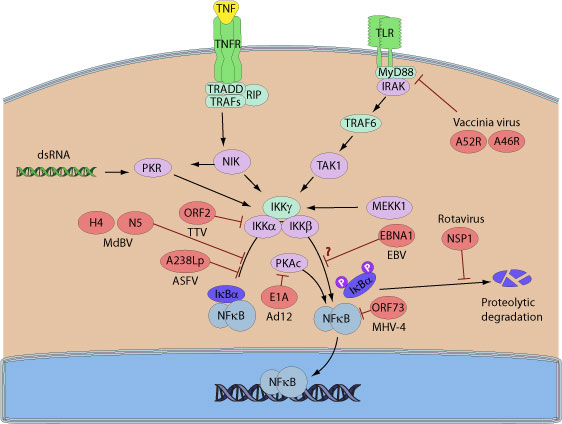NF-kappa-B is a pleiotropic transcription factor which is present in almost all cell types and is involved in many biological processed such as inflammation, immunity, differentiation, cell growth, tumorigenesis and apoptosis. In unstimulated cells, NF-kappa-B dimers are sequestered in the cytoplasm via physical association with NF-kappa-B inhibitory proteins, called I-kappa-Bs. Upon activation, NF-kappa-B separates from I-kappa-B and migrates to the nucleus to activate gene transcription.

Given the importance of controlling NF-kappa-B during viral infection, many viruses encode proteins that act on different cellular targets to ultimately inhibit the NF-kappa-B pathway. For example, several large DNA viruses including african swine virus, vaccinia virus or bracovirus encode proteins containing ankyrin repeats able to inhibit NF-kappa-B. Indeed, Vaccinia K1 inhibits NF-kappa-B by preventing I-kappa-B degradation. A238L from African swine fever virus interacts with free NF-kappa-B to prevent its nuclear translocation. Microplitis demolitor bracovirus encodes I-kappa-B-like genes. These viral proteins function as I-kappa-Bs and acts as inhibitors of NF-kappa-B, the HIV accessory protein Vpu was shown to inhibit NF-kappa-B activation by interfering with b-TrCP-mediated degradation of I-kappa-B and to promote apoptosis of the infected cell by suppressing NF-kBdependent expression of anti-apoptotic factors.

